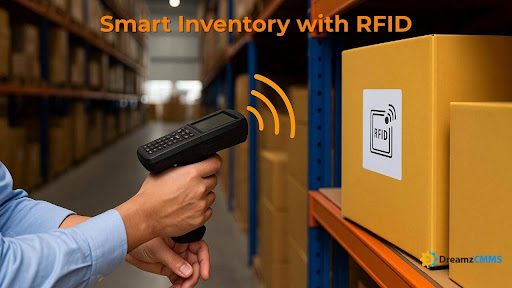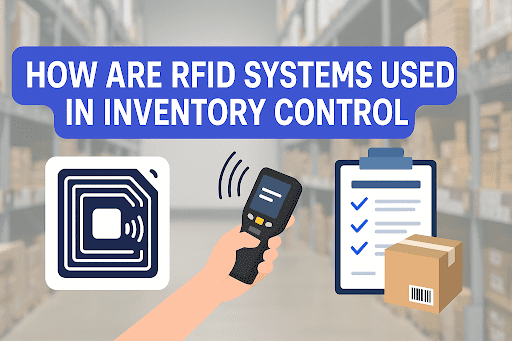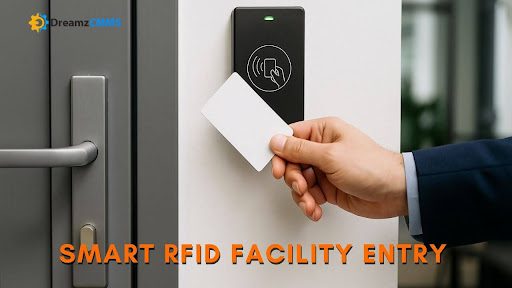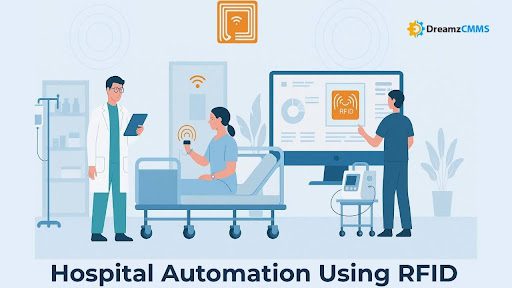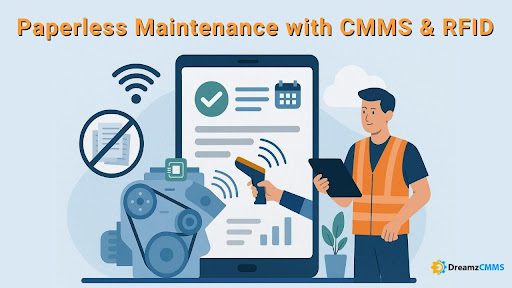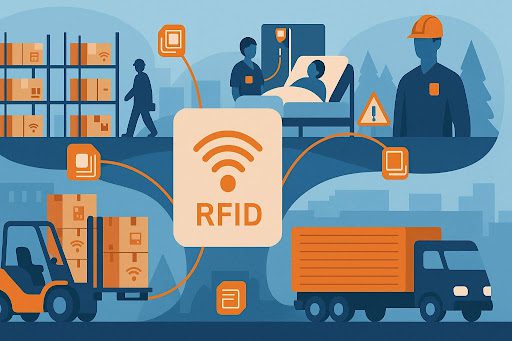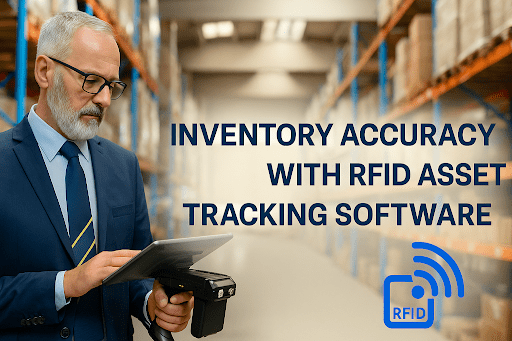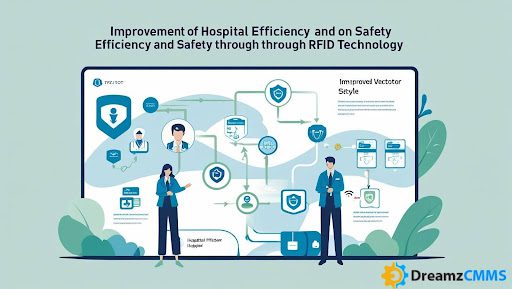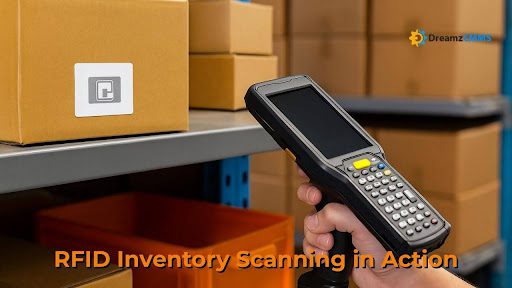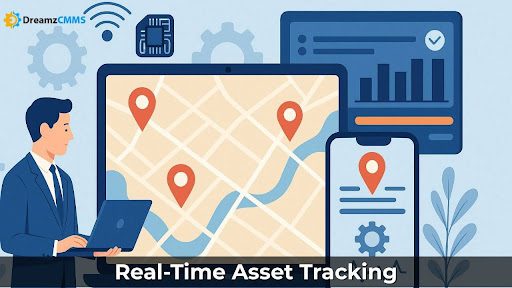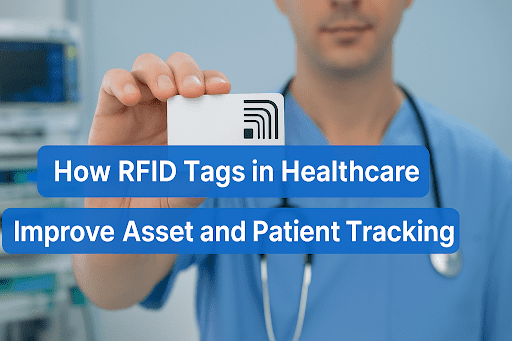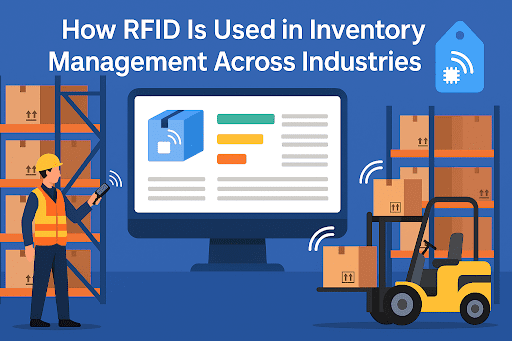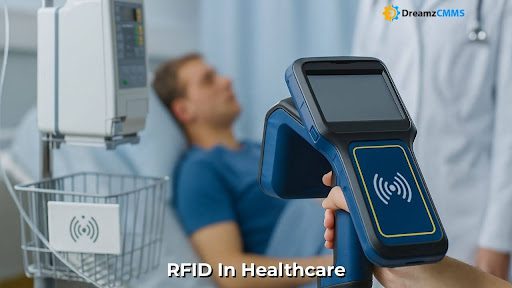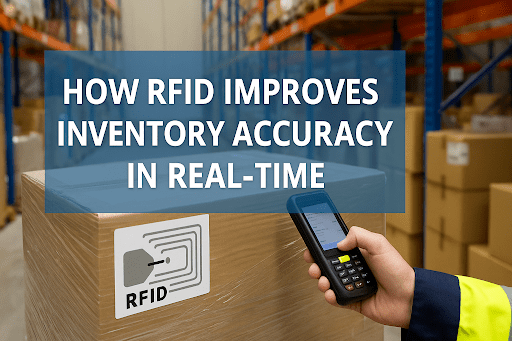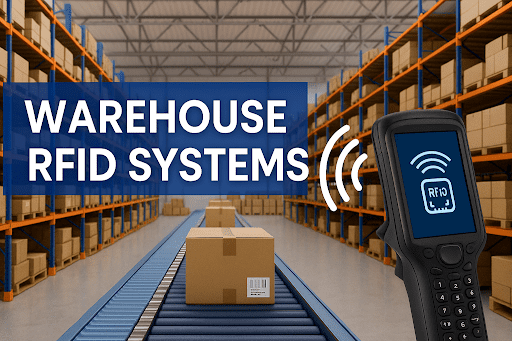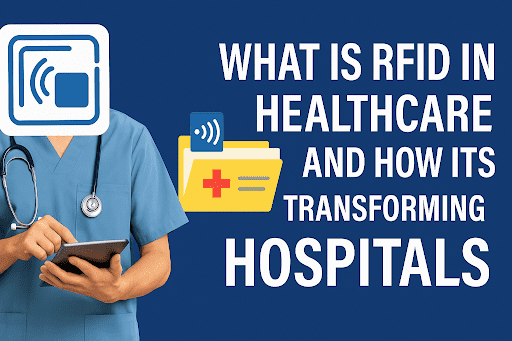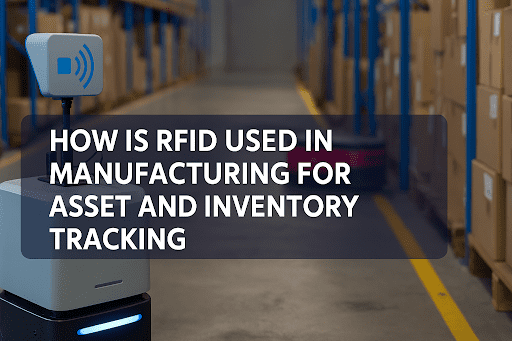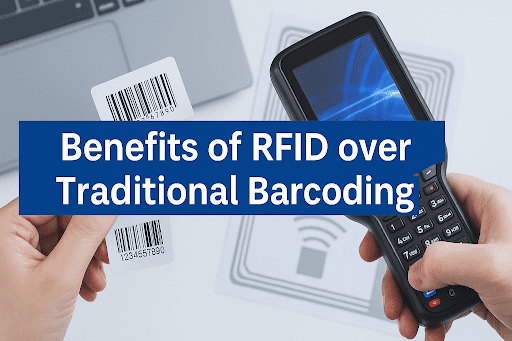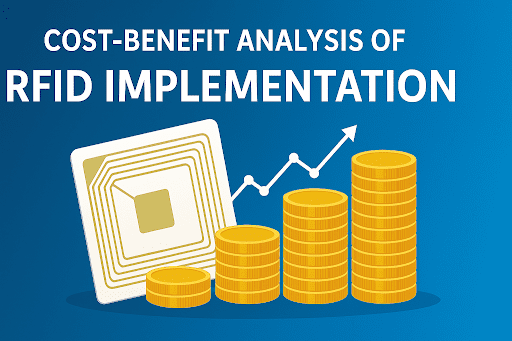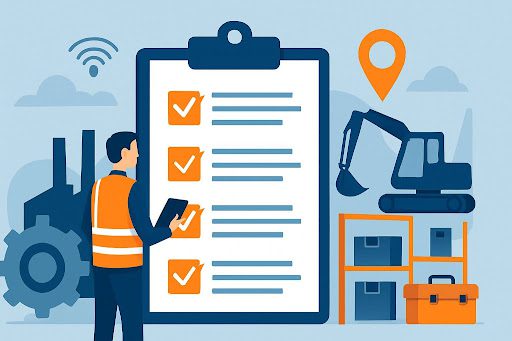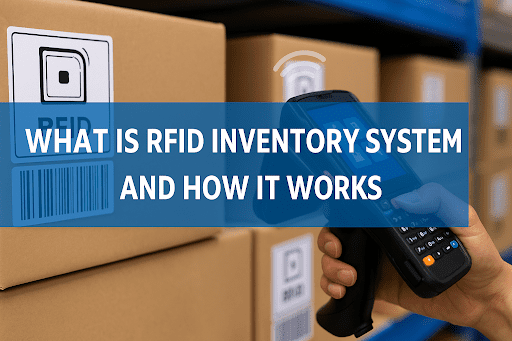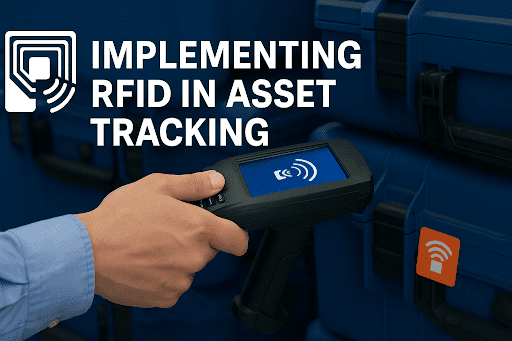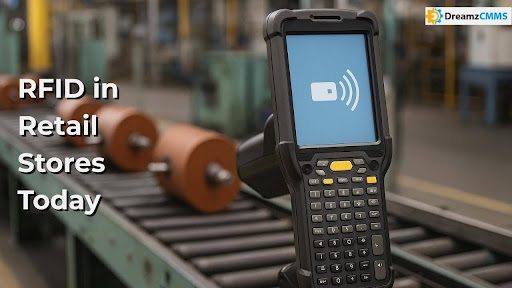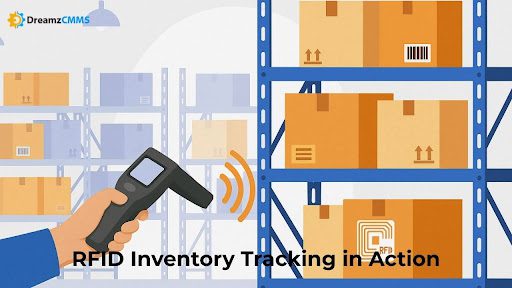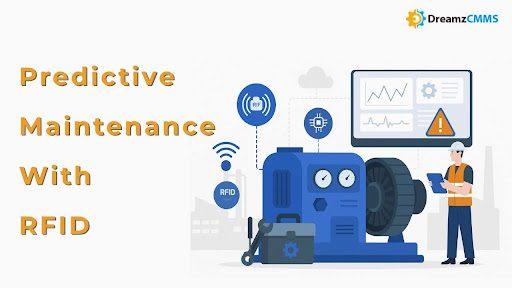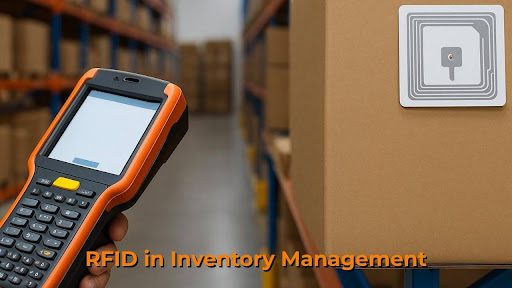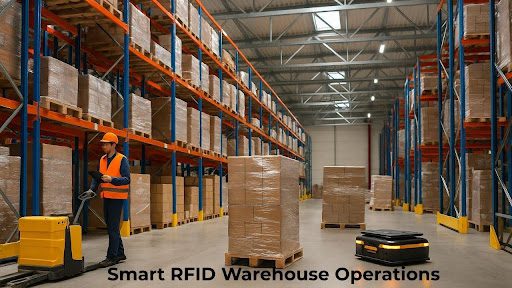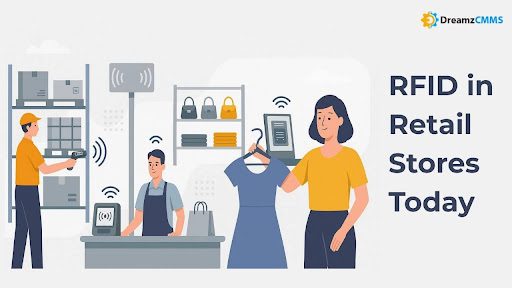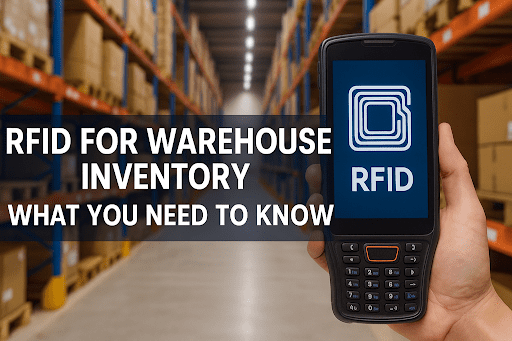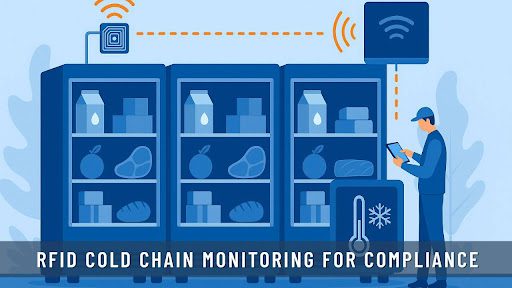 BACK TO Blog
BACK TO Blog
Asset Rental Management
RFID Asset Tracking
Benefits of RFID in Healthcare | Patients and Providers
- August 20, 2025
- DreamzCMMS Team
- 10 minutes read
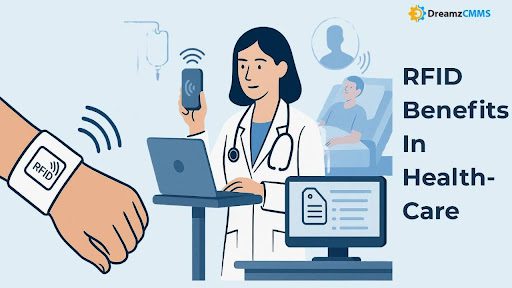
- August 20, 2025
- DreamzCMMS Team
- 10 minutes read
The implementation of RFID technology brings significant advantages to hospital operations and medical facilities and their patients and providers. The modern medical sector utilizes RFID technology to enhance patient safety while also optimizing asset management through accurate tracking. The medical field's time-sensitive nature becomes more efficient through RFID healthcare applications which demonstrate how enhanced speed and precision benefit both patients and providers.
RFID systems provide healthcare organizations with essential medical advantages including reduced errors and improved workflows together with better inventory control systems which make them essential for organizations aiming to be future-ready. The following detailed guide examines the advantages RFID technology delivers to medical staff and patients through practical implementations and financial impact analysis.
Our full guide about RFID in Hospitals provides comprehensive information about hospital-specific implementations.
Optimize Asset Maintenance with DreamzCMMS
Healthcare facilities can achieve superior equipment performance through strong preventive and predictive maintenance solutions.
Our maintenance management solution provides complete functionality to decrease downtime and enhance asset longevity and maintain regulatory compliance.
Asset Maintenance Management Software
What Is RFID in Healthcare?
The healthcare application of RFID technology employs radio waves to track and manage patients and medical equipment and supplies and medications across entire medical facilities. The RFID system excels at barcode technology since it operates without line-of-sight requirements and simultaneously detects multiple tags which leads to quicker scanning in high-traffic clinical areas.
An RFID healthcare system typically includes:
- RFID Tags: The RFID tags consist of tiny components with built-in microchips and antennas which medical facilities use to attach to equipment and supplies and patient wristbands. The storage capacity of tags includes distinct identifiers as well as patient information and asset documentation and inventory management details.
- RFID Readers: Healthcare facilities use fixed readers at entry points and storage areas and treatment rooms while staff members operate handheld readers for mobile scanning purposes. The devices enable instant data retrieval from tags through an automated process which eliminates human manual entry.
- Healthcare RFID Software: Healthcare RFID Software acts as a centralized system which collects and stores data from readers and conducts analysis. The system merges with hospital management systems and EHRs and RFID Asset Tracking Software to generate dashboards and alerts and reports that help users make decisions.
Real-time monitoring of assets as well as patient status and supply locations is possible.
- Automated data capture that reduces human error and manual paperwork.
- The workflow optimization through these solutions saves medical staff time which leads to better patient care outcomes.
- RFID technology creates an operational tool for patient safety and operational efficiency through the combination of hardware and software while providing RFID healthcare cost savings for both immediate and extended operations.
The complete explanation of RFID tracking principles can be found at What is RFID Asset Tracking.
Benefits of RFID in Healthcare – Overview
The RFID medical benefits overview presents the main advantages which patients and providers receive from the technology.
- Improved Patient Safety
- RFID technology enhances patient safety through precise identification of patients as well as medication verification and treatment follow-up.
- The system decreases the chance of wrong-patient or wrong-treatment errors.
- Asset Tracking and Utilization
- The benefits of RFID medical asset tracking systems provide instant access to expensive equipment while maintaining proper maintenance schedules.
- Cuts emergency reorders by up to 40%.
- Inventory Management
- RFID medical inventory benefits allow hospitals to automate stock counting and expiration tracking.
- Cuts emergency reorders by up to 40%.
- RFID medical inventory benefits allow hospitals to automate stock counting and expiration tracking.
- Workflow Optimization
- RFID hospital workflow benefits improve staff efficiency, reduce patient wait times, and streamline critical operations.
- RFID hospital workflow benefits improve staff efficiency, reduce patient wait times, and streamline critical operations.
- Error Reduction
- RFID healthcare error reduction prevents data entry mistakes, improves record accuracy, and enhances treatment compliance.
- RFID healthcare error reduction prevents data entry mistakes, improves record accuracy, and enhances treatment compliance.
RFID Healthcare Benefits Explained for Patients
1. Enhanced Safety and Care Accuracy
Patient safety stands as one of the most significant advantages RFID technology brings to healthcare settings. The RFID wristband contains patient information which includes medical background together with allergy list and medication prescriptions. Medical staff use wristband scanning to verify correct patient identification along with accurate medication administration at the right dosage before treatment.
Example:
A hospital adopted RFID wristband implementation that cut down medication mistakes by more than 55% during its initial year of operation.
2. Faster Emergency Response
The staff can locate essential emergency equipment like defibrillators or oxygen tanks in seconds through RFID technology implementation. Medical RFID technology advantages provide life-saving medical interventions in a timely manner because resource search times are eliminated.
3. Reduced Wait Times
The RFID hospital workflow provides automatic patient registration and real-time equipment location monitoring and queue system capabilities. The entry into RFID-enabled zones triggers automatic patient registration which leads to improved speed of care delivery.
4. Better Infection Control
The sterilization cycles of reusable devices and surgical instruments get tracked by RFID tags. The use of hygiene standards becomes more compliant and the prevention of cross-contamination becomes possible thus affecting patient health results.
5. Personalized Healthcare Experience
Healthcare providers use RFID technology to deliver personalized services through real-time patient location tracking and need assessment thus improving both patient comfort and satisfaction levels.
RFID Healthcare Benefits Explained for Providers
1. Increased Operational Efficiency
The most significant efficiency advantage of RFID in healthcare involves eliminating manual data entry tasks. The team's dedication to patient care increases productivity because they perform less administrative work.
2. Asset Management and Maintenance
RFID medical asset benefits enable the monitoring of expensive medical equipment including MRI machines and ventilators as well as infusion pumps. Automated maintenance scheduling systems decrease equipment downtime as well as lower repair expenses.
For asset-heavy environments outside healthcare, solutions like Asset Rental Management Software also leverage RFID for better control.
3. Inventory Optimization
The real-time monitoring capabilities of RFID medical inventory benefits enable hospitals to track their supplies including medications and surgical tools as well as consumables. The system provides automatic warnings to stop stock depletion and minimize waste which enhances financial management capabilities.
4. Cost Savings and ROI
The implementation of RFID healthcare systems produces financial savings through decreased labor expenses combined with decreased emergency purchases and reduced inventory depletion. Healthcare organizations can expect to achieve RFID healthcare ROI benefits after a period of 12–18 months from their initial implementation.
5. Compliance and Regulatory Support
RFID systems keep an audit trail of tagged assets which enables providers to meet healthcare regulations as well as maintain compliance with accreditation standards.
RFID Hospital Benefits Guide – Key Applications
1. Patient Identification and Tracking
The admission to discharge process at RFID ensures proper patient identification while tracking patient movements within the hospital for safety and operational efficiency.
2. Equipment and Asset Tracking
The exact location of every medical device can be tracked through RFID medical asset benefits which results in a search time reduction of up to 80%.
3. Medication Administration
The system ensures correct medication delivery to patients at proper times which helps prevent harmful medication mix-ups.
4. Surgical Instrument Tracking
The system tracks instrument sterilization cycles together with usage patterns and locations to enhance infection control compliance standards.
5. Supply Chain Management
RFID streamlines ordering, receiving, and stocking processes, ensuring materials are available when needed without overstocking.
For more supply chain-focused insights, read RFID in Retail.
Medical RFID Technology Advantages – Real-World Impact
Real-world implementations demonstrate how RFID technology achieves practical healthcare advantages through cost reduction and workflow optimization and patient safety improvements.
Case Study 1: Reducing Lost Equipment in a Large Hospital
The 900-bed metropolitan hospital experienced recurrent equipment losses as well as device misplacement of infusion pumps and wheelchairs and portable monitors. The combination of equipment replacement expenses and delayed patient treatment arose from missing medical equipment because staff members could not locate necessary devices.
The implementation of RFID healthcare system brought RFID tags for all mobile equipment while installing fixed RFID readers at essential hospital locations. The results were significant:
- The hospital achieved a 45% decrease in lost equipment expenses during its initial year.
- The time employees spent searching for devices decreased by 60% allowing them to dedicate more hours to patient care.
- Maintenance teams adopted RFID medical asset benefits to schedule preventive services which reduced equipment downtime.
The system generated both financial advantages through RFID healthcare and visible workflow enhancements during its first several months of usage.
Case Study 2: Improving Emergency Department Flow
A high-traffic emergency department faced permanent issues with waiting times and delays during triage operations. Medical staff struggled to find critical equipment such as defibrillators and crash carts during critical emergency situations.
The healthcare institution began using RFID technology for patient identification and staff identification and medical equipment tagging to achieve its healthcare benefits. Real-time location data enabled the ED team to:
- Track patient movement from arrival to discharge.
- Instantly locate critical tools during emergencies.
- The system enabled better resource management through real-time operational data.
The ED recorded these changes throughout six months of operation.
- A 30% reduction in patient waiting times.
- Faster triage and improved prioritization of urgent cases.
- The organization enhanced staff coordination through RFID implementation which generated improved RFID healthcare productivity gains.
These examples demonstrate that RFID technology in medicine creates actual enhancements for patient welfare alongside increased staff efficiency and better financial returns for hospitals.
RFID Healthcare Error Reduction – Protecting Patients and Providers
Healthcare errors produce dangerous situations together with high expenses. RFID healthcare error reduction strategies include:
- Automated data capture to eliminate transcription errors.
- Real-time alerts for mismatched patient-medication combinations.
- Tracking surgical instruments to prevent “retained surgical item” incidents.
RFID Medical Inventory Benefits – Smarter Stock Control
Medical facilities spend millions of dollars each year because expired medicines and unused hospital supplies go to waste. The use of RFID technology in medical inventory management leads to:
- Automatic removal of expired items from active stock.
- Just-in-time ordering based on real-time consumption patterns.
- Data-driven supplier negotiations to reduce costs.
Future Trends in RFID Technology Healthcare Benefits
Healthcare RFID advantages will advance efficiency and safety and cut costs at unprecedented levels in the upcoming era of medical technology.
1. IoT Integration
The combination of RFID with IoT sensors will monitor cold chain items such as vaccines and biological samples and medications for real-time compliance tracking and alerts to boost RFID patient safety benefits along with reduced waste.
2. AI Analytics
The combination of RFID data with AI technology enables better forecasting of asset requirements and improved maintenance planning and staff distribution to enhance both RFID healthcare efficiency and reduce equipment downtime.
3. Blockchain Security
RFID technology integrated with blockchain technology produces tamper-proof audit trails for medical information and supply chain management which strengthens RFID healthcare error reduction and regulatory requirements.
4. Wearable RFID Devices
Patient wristbands combined with smart wearables enable real-time patient tracking and monitoring which enhances RFID hospital workflow benefits together with emergency response speed.
The upcoming innovations will grow the benefits of RFID medical care and enhance RFID healthcare ROI outcomes to establish RFID as an essential tool for future patient care.
Conclusion
RFID technology in healthcare provides advantages which reach beyond basic tracking applications. Patients benefit from RFID because it provides safety measures and quicker services while delivering precise medical care. Through its implementation providers achieve RFID healthcare efficiency benefits and cost savings together with regulatory compliance and operational excellence.
The expansion of RFID technology will merge RFID healthcare cost savings with RFID patient safety benefits and RFID healthcare productivity gains to transform the healthcare environment. A forward-thinking medical organization should view RFID healthcare ROI benefits as a strategic investment because of their potential.
The RFID Asset Tracking Software enables your facility to access these advantages while optimizing operational processes.
Explore how our RFID Asset Tracking Software can help your facility unlock these benefits and streamline operations.
Get Started with DreamzCMMS Today
Advanced RFID solutions can transform healthcare operations through patient safety improvement and deliver quantifiable cost savings for hospitals.
Watch how DreamzCMMS simplifies your workflows from day one by booking your free demo.
Ready for More?
Talk to one of our CMMS experts and see how DreamzCMMS can simplify your maintenance operations.
Book a free consultation